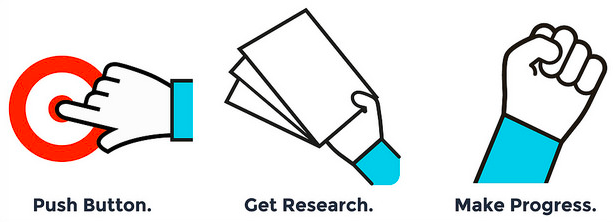
Open Access Button / CC BY 2.0
Today at an Open Access Week event in London, the Open Access Button was re-launched with new features “to help researchers, patients, students and the public get access to scientific and scholarly research.” The Open Access Button originally was created in response to researchers running into paywalls or other control mechanisms when they attempted to read and re-use scholarly journal articles.
The beta Open Access Button–released in November 2013–documented these stymied research efforts, tracking nearly 10,000 instances of denied access due to paywalls. The updated button is a browser plug-in that enables a person who conducts a similar search–but who is once again denied access–to explore other options in order to get access to the paper. It does this by conducting a search for a freely-available version of the research article on the web, for example a preprint or unformatted version of a finalized article manuscript. If this does not work the button provides the functionality to send an email to the author of the article to ask that a copy of the article be made available and shareable to others who need it. The button will do other things, too, such as creating a unique listing for each paper that is requested, so that authors can view demand for access to their works. Finally, the button aims to collect data and anecdotes arising from its use in order to feed advocacy and reform efforts related to the scholarly communications and publishing system.
The Open Access Button is an interesting tool because it both increases awareness of a problem within the academic publishing ecosystem and strives to deliver needed articles into the hands of the researchers to conduct their work. It is informational, empowering, and practical. Anyone can now install the Open Access Button. Congratulations to the terrific team on extending a creative and useful tool in support of open access to scholarly research.
Below is the video recording from the Open Access Button launch on 21 October. Keep an eye on the CC blog and Open Access Week website for more information about OA events this week.






